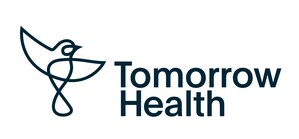- Despite dedicated health insurance resources, home-based patients often manage their complex care coordination on their own
- Patient respondents affirmed even the tiniest delays in care delivery can have grave repercussions on their health and lifespan
NEW YORK, May 18, 2023 /PRNewswire/ -- Tomorrow Health, an innovator in home-based care, today released the results of a landmark home-based care survey. Querying 500 home-based adult patients and 500 paid and unpaid caregivers, survey results point to a broken home-based healthcare experience for both patients and caregivers.
With care moving beyond the walls of health systems and facilities, healthcare delivery is in a transformational moment. It's projected that $265 billion of care services will transition to the home by 2025. 35 million Americans are hospitalized annually, with at least two-thirds discharged to self-care at home. Unsurprisingly, 20% of discharged patients get readmitted to the hospital, and many cite medical supply complications or delays as a contributing factor. More than a third of home-discharged patients transition to higher-cost settings over the course of the following year. These avoidable readmissions take a financial and mental toll on patients.
Health insurers have built care teams to manage home-based patients coordinating in-home support, nutrition services, transportation to appointments, and the delivery of life-saving medical equipment. Coordination services are meant to lower overall healthcare costs and help offload the care burden that patients and caregivers face during a transition to home.
Unfortunately, survey findings show that patients and caregivers are overwhelmed and stressed. Both groups equally (31%) blame each other when there is a delay in receiving life-saving medical equipment. Findings further exhibit that many patients are left in the dark, unaware of any coordinated assistance services made available by their health insurers. An overwhelming majority (77%) of the patients also reported that they are the primary contact for their medical suppliers. The survey also disclosed that 59% of patients received unreliable or poor-quality medical supplies and equipment.
Surveyed patients also shared their personal thoughts on the unreliability of receiving medical equipment:
- "Delays make me miss my doses which often lead to symptoms like headache."
- "My health is unpredictable; I always need oxygen available because I suffer from breath blockage from time to time, [a] delay may lead my current supply to finish, and I could die."
- "I need my dialysis solutions nightly, so not being able to receive them on a timely basis is life or death to me."
Caregivers further divulged their frustrations about the gaps in coordination in home-based care. 60% of caregivers confirmed they had experienced delays or disruptions that kept their patients from receiving medical equipment or supplies. 58% of caregivers surveyed said receiving unreliable or poor-quality medical supplies has negatively impacted either their lives or the lives of their patients.
53 million unpaid adult American caregivers spend on average 23.7 hours a week providing care, equalling a staggering $600 billion in free labor annually. Although initiatives like the Family and Medical Leave Act (FMLA) and the Biden administration's recent executive order provide some hope, challenges remain. Addressing care transitions, care coordination, social isolation, physical and emotional strain, and financial distress will require innovative regulation, technology and services.
"The time is now for leaders across the healthcare ecosystem to recognize the vital role that caregivers play and to invest in enabling and supporting them,” said Vijay Kedar, co-founder and CEO of Tomorrow Health. “From clinical teams actively engaging caregivers as members of the care team to health plans providing solutions to augment caregiver efforts to manage and coordinate home-based care, increased awareness and investment will reduce caregiver burnout and improve patient outcomes.”
Download an overview of the results here.
About Tomorrow Health
Tomorrow Health builds technology that improves the way home-based care is ordered, delivered, and paid for. Today, the home-based care ecosystem is fragmented, confusing, and expensive, costing the healthcare system billions of dollars annually. Tomorrow Health manages and improves every step of the process, using technology-driven matching and considering quality, specialization, insurance coverage, and geography to pair patients with appropriate suppliers of more than 40,000 products and services. As a result, Tomorrow Health reduces the time it takes to coordinate and deliver home-based care for the one in four Americans who need it, from prescription to reimbursement, to patient outcomes - ultimately leading to improved patient health results and lowered costs. Tomorrow Health partners with more than 125 leading health plans and health systems nationwide, including Pennsylvania's Geisinger Health Plan, and is backed by Andreessen Horowitz, BOND, Obvious Ventures, BoxGroup, Rainfall Ventures, and Sound Ventures. For more information, visit www.tomorrowhealth.com or contact [email protected].
Media Contact
[email protected]
SOURCE Tomorrow Health
WANT YOUR COMPANY'S NEWS FEATURED ON PRNEWSWIRE.COM?
Newsrooms &
Influencers
Digital Media
Outlets
Journalists
Opted In





Share this article